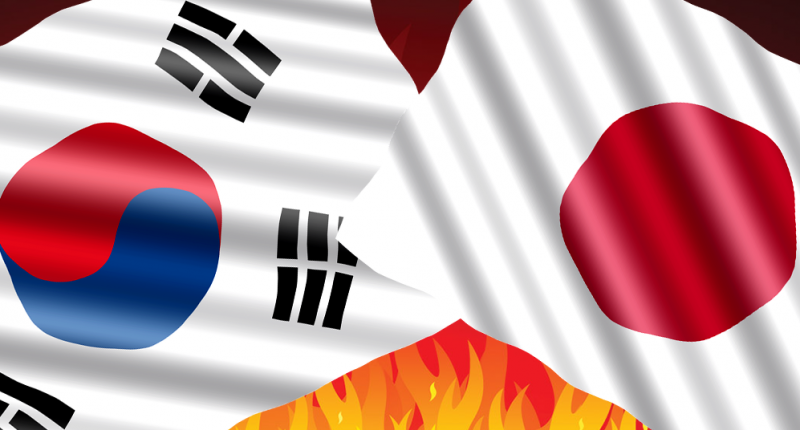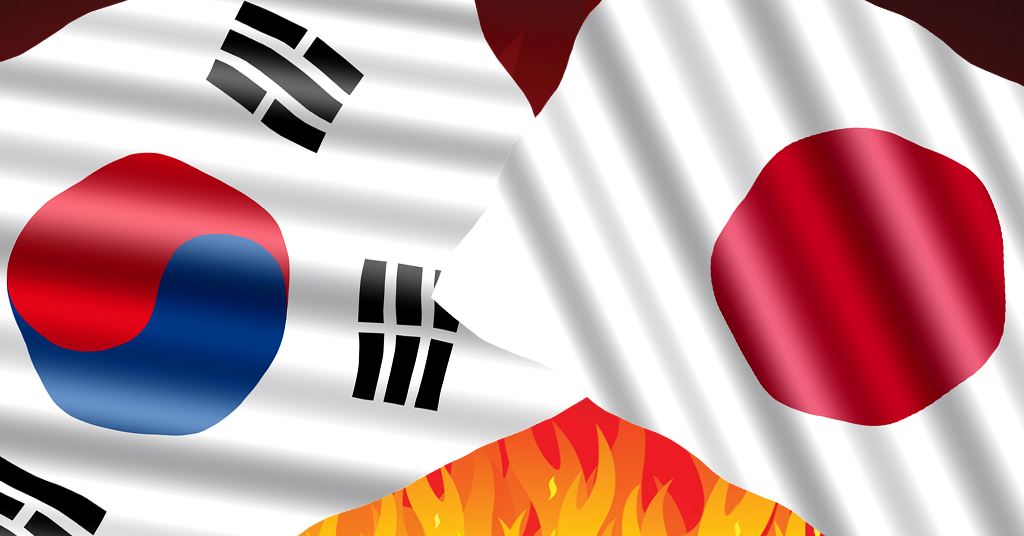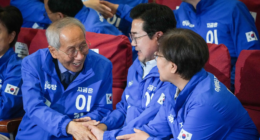Last week South Korea’s Defense Ministry stopped using the term “partner” to describe Japan in a white paper issued by the Ministry – a move showing an apparent “downgrade” in relations according to local media.
For months the relationship between the two north east Asian economic powerhouses has been on a downward trajectory, in large part having been set in motion by Seoul’s continued efforts to shift attention away from domestic woes by once again bringing up the diplomatically resolved issue of comfort women that for decades caused tension between the two countries.
In the previous white paper South Korea issued just two years ago, the nations were described as “geographically and culturally close neighbors as well as partners cooperating for global peace and prosperity” with the most recent opting for “close neighbors that should cooperate not only for the two countries’ relationships but also for peace and prosperity in Northeast Asia and the world.”

Despite international agreements and court judgements on both sides of the Sea of Japan having been met by Tokyo, South Korean officials have used the comfort women card to demand ever increasing amounts of compensation from Japanese authorities and private entities for events that took place during Japan’s colonization of the Korean Peninsula between 1910 and 1945.
In 1965 a treaty between Seoul and Tokyo and signed by both normalised diplomatic relations between the two countries.
South Korea received compensation from Japan at the time aimed at settling all issues stemming from colonial times with both governments agreeing issues had been “settled completely and finally”.
Importantly, none of this was passed on to the victims by the government of the day – the same victims now being used by Seoul to demand further compensation.
Tokyo and Seoul reached another agreement just six years ago, in 2015, that “finally and irreversibly” settled any issues Korea wanted to raise with Japan again apologising to South Korea and putting together a one billion yen fund for any surviving comfort women.
Yet just last month South Korean government officials once again sought to divert attention from issues at home by again ignoring all previous agreements and demanding Japanese once more pay out for long settled issues.
Where this latest round of South Korean attention seeking ends up is anyone’s guess.
But the increased levels of anti-Japanese rhetoric are sounding stale at best, and at worst distract from the memories of the remaining comfort women that should be cherished and learned from as long as they remain with us.










